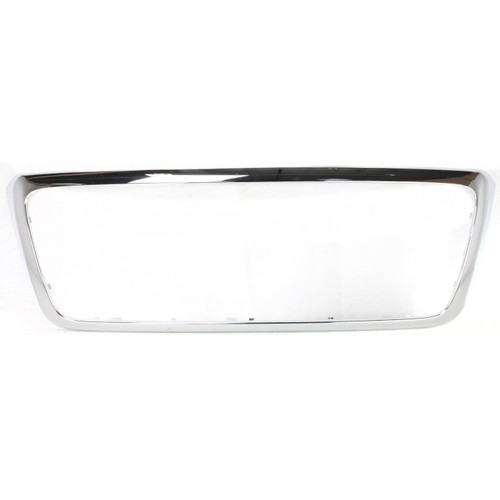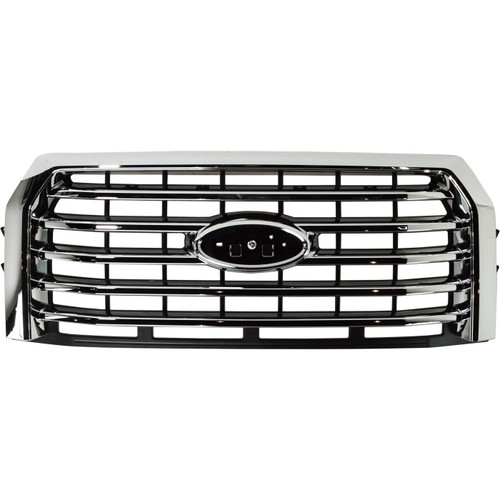-

-
Chrome Grille For 2015-2017 Ford F-150
MSRP: $299.00$286.62 -
Grille For 2016-2017 Ford F-150
MSRP: $539.00$439.00 -
Black Front Grille For 2015-2019 Jeep Renegade
MSRP: $599.00$129.88 -
Chrome Grille Trim Set For 2015-2018 Jeep Renegade
MSRP: $189.00$61.25 -
-
Upper Grille Mounting Panel For 2017-2020 Jeep Compass
MSRP: $219.00$96.42 -

Front Lower Grille For Ford Focus
MSRP: $249.00$46.91 -

2007-2008 Ford F-150 Chrome Grille Molding
MSRP: $299.00$149.00 -
Chrome Grille Trim Surround For 2013-2016 Ford Fusion
MSRP: $149.00$75.49 -

2013-2016 Grille For Ford Escape SEL/Titanium Black With Chrome Molding
MSRP: $179.00$111.32 -

Black Grille For 2012-2014 Ford Focus Without Sensors
MSRP: $109.00$43.24
Frequently Asked Questions about Grilles
What are Car Grilles for?
Car grilles serve both functional and aesthetic purposes. Functionally, they allow air to flow into the engine bay, helping to cool essential components while preventing debris from entering and causing damage. Aesthetically, grilles contribute to a car's overall design, often reflecting the vehicle's brand identity and enhancing its appearance.
Is It Safe to Drive Without a Grille?
Driving without a grille is not recommended as it exposes critical components, such as the radiator, to damage from debris, rocks, or insects. Over time, this can lead to costly repairs or reduced performance due to impaired cooling. While it may be safe for short, temporary situations, it’s essential to replace or repair the grille promptly to protect your vehicle and maintain optimal performance.
How Much Does a Car Grille Replacement Cost?
Yes, installing a car radiator yourself is possible with basic mechanical knowledge and the right tools. The process involves draining the coolant, removing the old radiator, installing the new one, and refilling the coolant. Common tools include a wrench, a drain pan, and safety gloves. While the steps are straightforward for most vehicles, modern cars with complex systems or wiring may require professional assistance to avoid complications. If you're unsure, consulting a mechanic is recommended.







